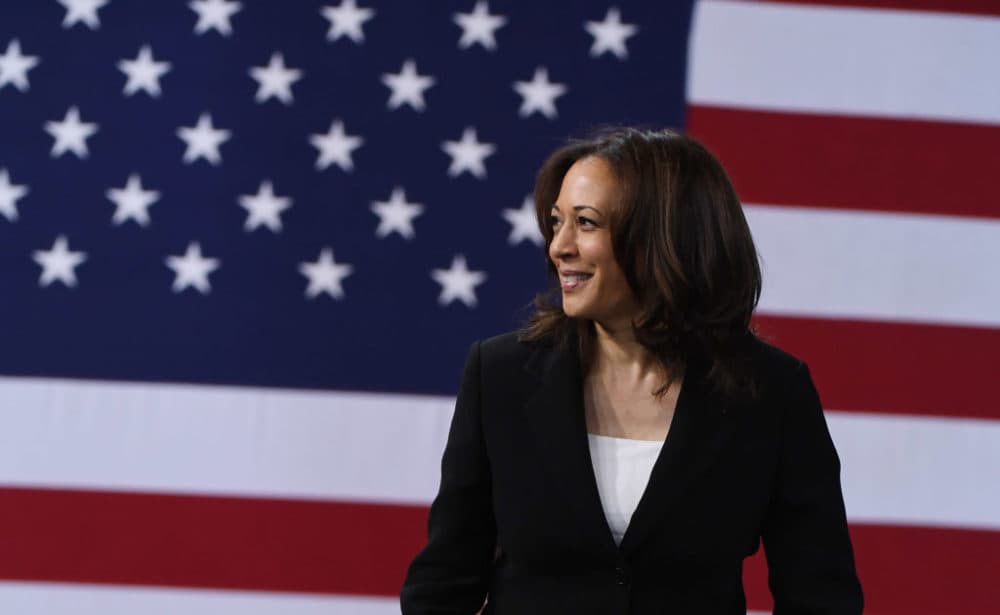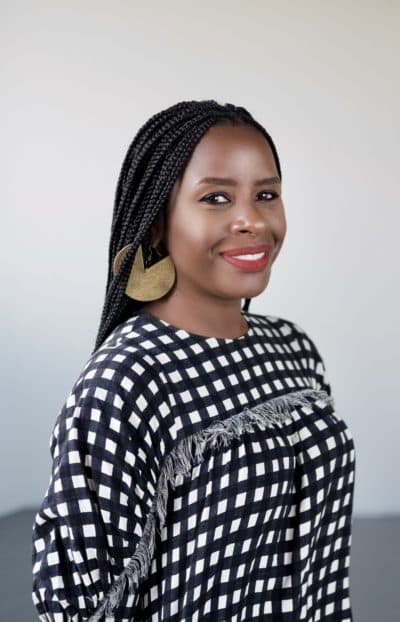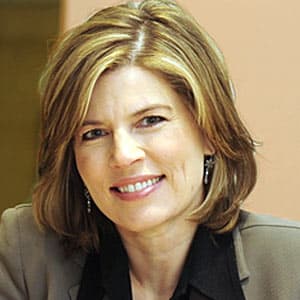Advertisement
Unpacking What It Means To Call Kamala Harris A 'Jezebel'

Since Vice President Kamala Harris took the oath as the country’s first female vice president last month, some members of the Southern Baptist Convention have referred to her as a Jezebel.
Two days after Inauguration Day, Tom Buck, senior pastor at the First Baptist Church in Lindale, Texas, tweeted, “I can’t imagine any truly God-fearing Israelite who would’ve wanted their daughters to view Jezebel as an inspirational role model because she was a woman in power.”
Despite criticism, Buck says he stands by his words.
Jezebel is a Biblical queen whose name has become shorthand for a woman who is manipulative, seductive and wicked, says Tamura Lomax, foundational associate professor in the Department of African American and African Studies at Michigan State University and author of the book, "Jezebel Unhinged: Loosing the Black Female Body in Religion and Culture."
In order to understand how this Biblical figure turned into a stereotype, you have to unpack Jezebel’s backstory, Lomax says.
According to the Bible, Jezebel was a Phoenician princess who married King Ahab of northern Israel. Jezebel refused to worship the Hebrew God Yahweh, flouting traditional gender roles of the time.
“So Jezebel becomes a very, very powerful queen. And this is what we have to think about when thinking about the stereotype,” Lomax says. “This still happens today in our society. When women have too much power, they're too proud, they are immediately sexualized. So there's a power dynamic here.”

Lomax says calling Vice President Harris a Jezebel signifies that she’s a bad, untrustworthy woman who is misusing her power.
Not only is there a sexist undertone, but scholars like Lomax say the word Jezebel has racist origins as a term used to denigrate enslaved African women.
“It's kind of this gaslighting that happens often to Black women when these racialized stereotypes are utilized,” Lomax says.
Still, hearing Southern Baptist pastors call Harris a Jezebel didn’t surprise Lomax, who as a young Black girl growing up in a Christian household was “constantly being policed, but also being reconfigured in a very hypersexual way,” she says.
She first realized this dynamic at age 11 when a prominent member of the church told her father he couldn’t focus on prayer because he was too distracted by her butt.
Instead of being upset with the church member, Lomax says her parents told her she wasn’t allowed to wear that dress to church again.
Advertisement
“It's what many Black parents do, you know, out of protection,” she says. “So when it happened to Kamala, I said, 'Yes, of course. I expected this from them. I expected this trope to come about and to take on new life with the new vice president.' ”
Weeks before the Capitol insurrection on Jan. 6, Steve Swofford, head of the First Baptist Church of Rockwall near Dallas, made a similar statement during a sermon where he said, “What if something happens to Biden and Jezebel has to take over?”
Pastors Buck and Swofford declined to comment for this story. But J.D. Greear of the Southern Baptist Convention said in a statement to Here & Now that “some pastors are likely unaware of the history of certain racial stereotypes in calling or comparing our vice president to Jezebel, but that doesn’t make such statements any less unwise."
Greear also called for speaking truth to power, and calling out injustice, but said “that should not include personal attacks on an elected official God has told us to honor and pray for."
The use of Jezebel to describe Harris also speaks to the fear that many Southern Baptists feel when women are in positions of power, Lomax says. In fact, it’s written into the bylaws of the Southern Baptist Church that women should not lead men.
“It's such a disgusting thing, and it's the same pattern again and again and again. It's the same script again and again and again,” she says. “That is to say that they are untrustworthy, they are a threat to society.”
The racist undertones of the word Jezebel are further amplified coming from the Southern Baptists, Lomax says, who were founded on their support for slavery.
“Here you have this woman [Harris] who's in one of the highest offices of the land of the world ultimately, and so there's a fear about her being in this position,” she says. “The idea is that [these women] are untrustworthy. They are a threat to society, so we need to get rid of them. And so this is a very dangerous territory ... that they are traveling with this stereotype.”
Marcelle Hutchins produced and edited this interview for broadcast with Tinku Ray. Samantha Raphelson adapted it for the web.
This segment aired on February 23, 2021.

